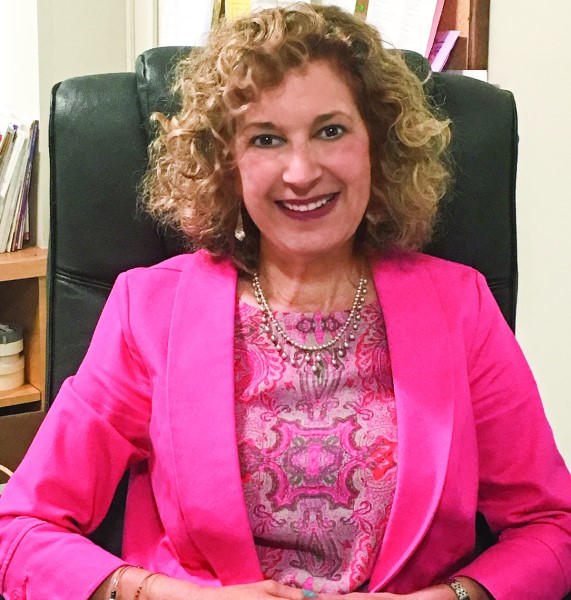Temple Beth-El’s long-time education director retires
Many people on the verge of retirement are more than ready to chuck their job, but that wasn’t the case for Anita Steiman.
Steiman, 61, who served as education director at Providence’s Temple Beth-El for 25 years, retired in May. She grew up in the temple, and after a brief stint teaching remedial math in Plymouth, Massachusetts, she returned to teach at Beth-El in 1980, eventually rising to the position of education director.
Steiman is both excited and sad about retiring, but is definitely looking forward to seeing “what it’s like to have a weekend,” since she also taught Sunday school.
“I could never visit my kids on weekends, since I was teaching,” says Steiman, whose children live in Massachusetts, New York and Washington, D.C. But now, with her free time, she says she’s thinking about volunteering at the Dwares Jewish Community Center, in Providence, where her 7-month-old grandchild is in day care.
With the new grandchild and the retirement of Rabbi Leslie Gutterman, Steiman’s long-time colleague and friend, she felt the time was right to step down. However, before doing so, Steiman helped revamp the educational curriculum. She also stayed on to help the temple’s new rabbi, Howard Voss-Altman, settle into his position.
“I didn’t want them to have to deal with another change, so it wasn’t the right time to leave,” Steiman says of her decision to stay on for a year after Gutterman left the temple.
The changes in the curriculum, she says, are part of the school’s move to become more flexible in meeting students’ needs. The new model gives students more options on when they attend religious school.
“You have to work with the families because otherwise you’re going to lose them,” Steiman says of the approach she took in helping to make the educational curriculum more accommodating.
Before the change in structure, she says, students would often attend other extracurricular activities instead of Hebrew school, or they might not attend due to time constraints. Sometimes, they would even choose not to become a Bar or Bat Mitzvah.
“They were already in school, so they would think, why add on more?” Steiman says.
Steiman, who believes in a learning-by-doing approach, also spearheaded the introduction of field trips into the curriculum, in partnership with the teachers, who she says frequently made suggestions.
“I think that’s what they’re going to remember more than textbook learning,” she says of the trips, which included visits to national monuments both Jewish and otherwise. “Plus the bonding on the bus. It’s those memories.”
Steiman says what she’ll miss the most was the relationships she made while working at Beth-El.
“I always loved when kids would stop in at the temple and to visit me. You knew you had made an impact on them. They thought about the temple when they weren’t there, and that was very special,” she says.
“I never thought of them as … subordinates,” she says, pausing to choose the right word. “We were always equal. I never felt that because of my title, it entitled me to anything. They were all special friends of mine, and I think that’s what I’ll miss the most.”
ARIEL BROTHMAN is a freelance writer who lives in Wrentham, Massachusetts.








